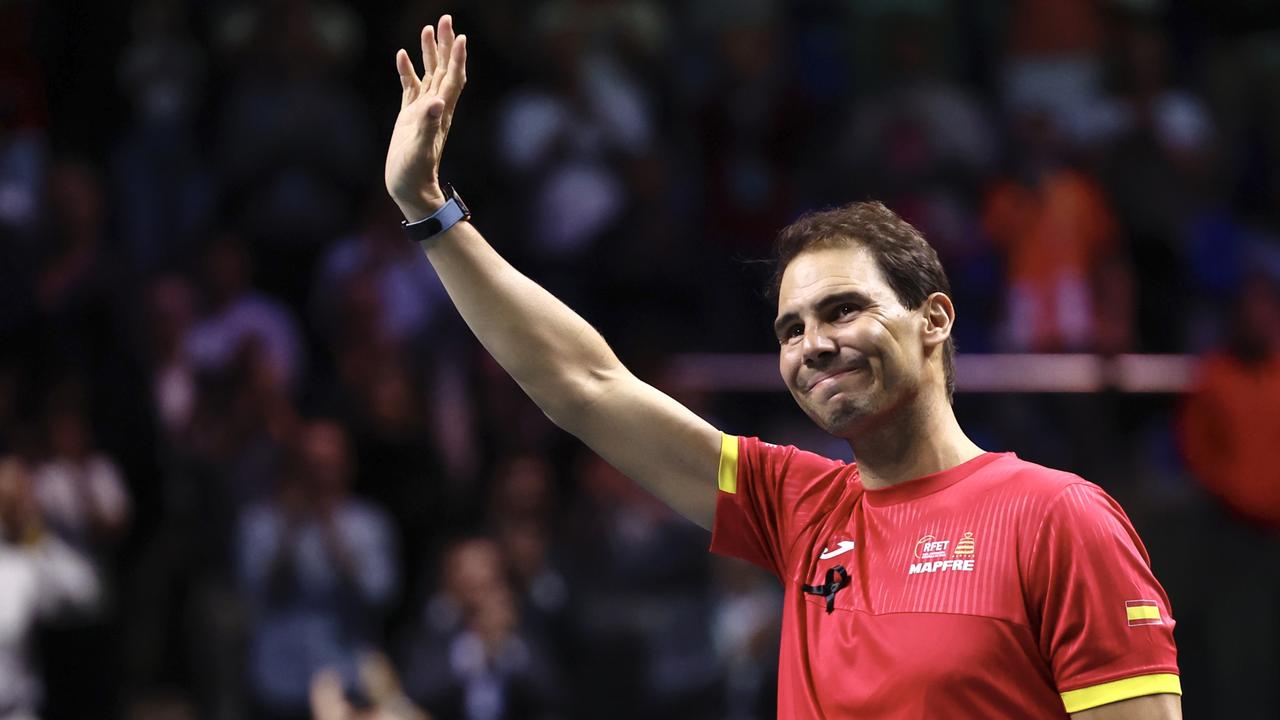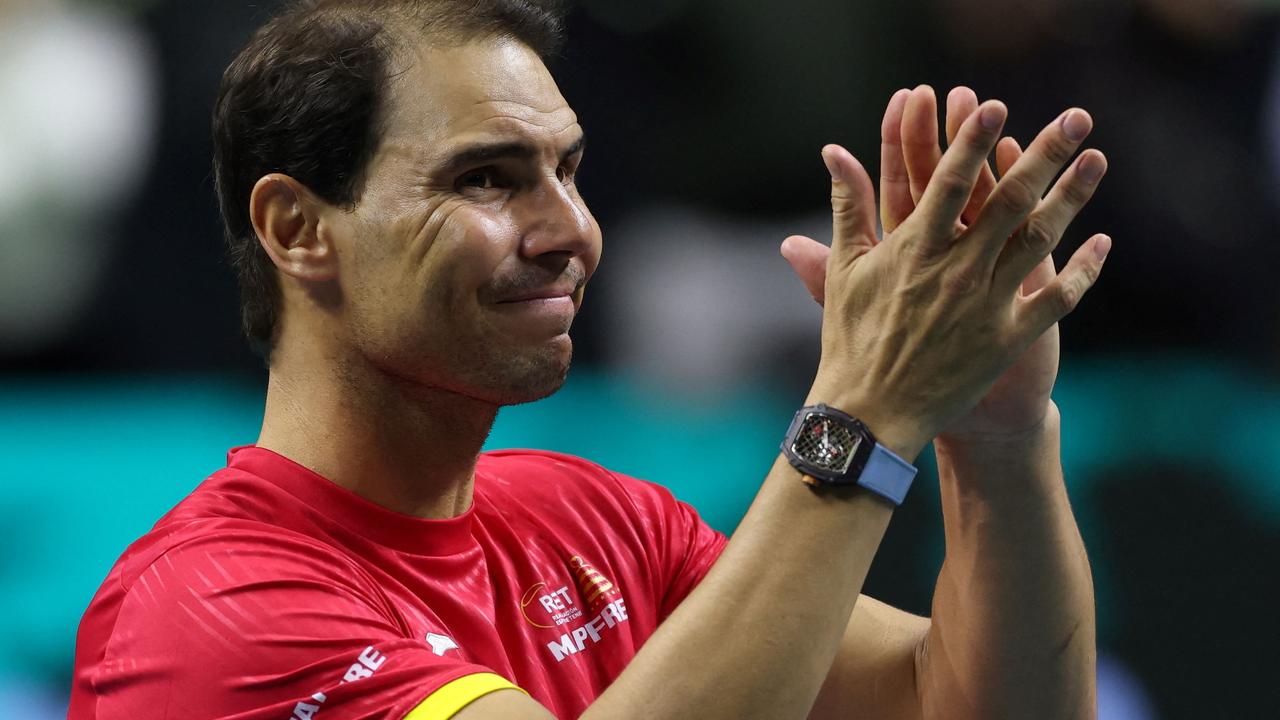Serena Williams announces her retirement from tennis after US Open
For almost three decades, Serena Williams was a tennis force to be reckoned with, but she will end her career one slam behind Margaret Court. So who is the GOAT? VOTE BELOW.
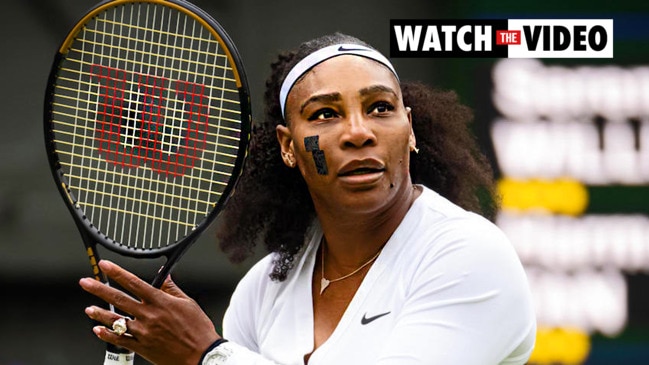
Serena Williams has announced her upcoming retirement from tennis at the age of 40 and said that had it not been for the pressure of chasing Margaret Court’s all-time record of 24 grand-slam singles titles, she might have won more than 30.
The American great will bring an end to her glittering 27-year professional career at the US Open this month. She has won on 23 occasions across all four grand-slam tournaments, including her seven triumphs at Wimbledon, and claimed an Olympic singles gold medal at London 2012. She also won an additional 16 grand-slam titles in doubles, 14 of them with her elder sister Venus, and a further two Olympic golds.
However, on the count of grand-slam singles trophies won, Williams remains one behind Australia’s Margaret Court. She had several chances to equal the record after returning to the tour as a mother in 2018 but has lost her past four grand-slam finals in straight sets.
“There are people who say I’m not the GOAT [greatest of all time] because I didn’t pass Margaret Court’s record of 24 grand-slam titles, which she achieved before the ‘open era’ that began in 1968,” Williams wrote in Vogue. “I’d be lying if I said I didn’t want that record. Obviously I do. But day to day, I’m really not thinking about her. If I’m in a grand-slam final then, yes, I am thinking about that record. Maybe I thought about it too much, and that didn’t help.
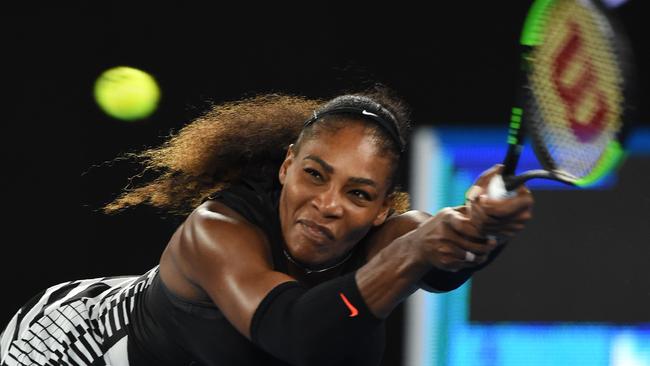
“The way I see it, I should have had 30-plus grand-slams. I had my chances after coming back from giving birth. I went from a C-section to a second pulmonary embolism to a grand-slam final. I played while breastfeeding. I played through postpartum depression. But I didn’t get there. Shoulda, woulda, coulda. I didn’t show up the way I should have or could have. But I showed up 23 times, and that’s fine. Actually it’s extraordinary. But these days, if I have to choose between building my tennis resume and building my family, I choose the latter.”
A day after hinting that she was close to retirement by telling reporters at the Rogers Cup in Toronto that she could see “a light at the end of the tunnel”, Vogue released a first-person article by Williams that explained her reasons. The cover features a photograph of Williams on the beach with her four-year-old daughter Olympia, accompanied by the headline “Serena’s farewell”.
“I have never liked the word retirement,” Williams wrote. “It doesn’t feel like a modern word. I’ve been thinking of this as a transition, but I want to be sensitive about how I use that word.
“Maybe the best word to describe what I’m up to is ‘evolution’. I’m here to tell you that I’m evolving away from tennis, toward other things that are important to me. A few years ago I quietly started Serena Ventures, a venture capital firm. Soon after that, I started a family. I want to grow that family.”
Williams narrowly lost to France’s Harmony Tan in the first round at Wimbledon last month and she is in action this week on the hard courts at the Rogers Cup in Toronto, claiming her first singles win for 14 months on Monday against Spain’s Nuria Parrizas Diaz; she will also contest next week’s Cincinnati Open before her final farewell at Flushing Meadows.
“Unfortunately I wasn’t ready to win Wimbledon this year,” Williams wrote. “And I don’t know if I will be ready to win New York. But I’m going to try.
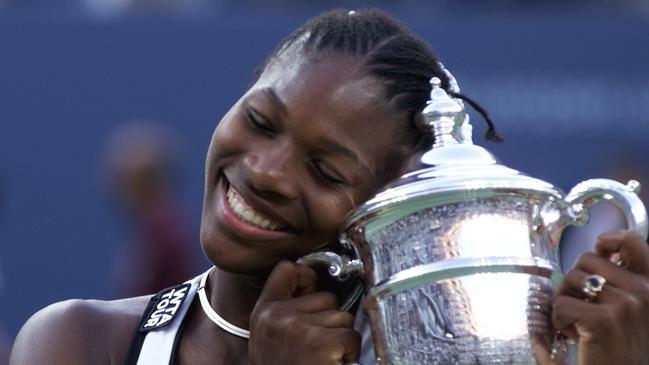
“I know there’s a fan fantasy that I might have tied Margaret that day in London, then maybe beat her record in New York, and then at the trophy ceremony say, ‘See ya!’ I get that. It’s a good fantasy. But I’m not looking for some ceremonial, final on-court moment.
“I’m terrible at goodbyes, the world’s worst. But please know that I am more grateful than I can ever express in words. You have carried me to so many wins and so many trophies. I’m going to miss that version of me, that girl who played tennis. I’m going to miss you.”
Williams also revealed that she had consulted the golfer Tiger Woods before deciding to return to action at Wimbledon. His encouragement prompted her to give it one last go this summer.
“This spring I had the itch to get back on the court for the first time in seven months,” Williams wrote. “I was talking to Tiger Woods, who’s a friend, and I told him I needed his advice on my tennis career. I said, ‘I don’t know what to do: I think I’m over it, but maybe I’m not over it.’ He’s Tiger, and he was adamant that I be a beast the same way he is! He said, ‘Serena, what if you just gave it two weeks? You don’t have to commit to anything. You just go out on the court every day for two weeks and give it your all and see what happens.’
“I said, ‘I think I can do that.’ And I didn’t do it. But a month later, I gave it a try. And it felt magical to pick up a racket again. And I was good. I was really good. I went back and forth about whether to play Wimbledon, and the US Open after that. As I’ve said, this whole evolution thing has not been easy for me.”
The urge that kept Serena going into her 40s
Had Serena Williams added two more grand-slam singles trophies to her collection of 23, then the racket would have been hung up already. Keeping her going on the court into her 40s was the desperate urge to surpass Margaret Court’s record of 24.
Yesterday, defeat was finally conceded in Williams’s bid to become the undisputed greatest of all time (GOAT). Some of her loyal supporters will still harbour hopes that she can bow out on a high by winning the US Open next month to draw level with Court, but the tone and wording of the extensive article in Vogue suggests that Williams has come to terms with the idea that claiming seven consecutive victories over the course of a fortnight is beyond her at the age of 40.

This is in no way meant to demean the achievements of Williams during a remarkable professional career lasting 27 years. Many will reasonably claim that she should be subjectively considered the GOAT because of the way in which she lifted the women’s game to new heights. Her major titles were all won during a far more competitive period than the era of Court, who claimed the last of her 24 in 1973.
It is a shame that Williams does not quite get the icing on the cake that her story deserves. From humble beginnings with her sister Venus on the public courts of Compton, California, her journey to become one of the world’s most recognisable athletes is the stuff movies are made of - namely King Richard, the biopic released last year in which Will Smith portrayed the hands-on role that her father and coach played during the childhood of his two tennis-playing daughters.
The racism that Williams endured in a predominantly white middle-class sport was disgraceful. Shamefully this lingered well into her career, forcing her to boycott the Indian Wells Open for 14 years after spectators abused her and her family during the 2001 final in response to Venus pulling out of their scheduled semi-final. Last year,Williams said she was still traumatised by the experience.
Obstacles have also had to be overcome physically. She was absent from the sport for close to 12 months from July 2010 when she badly cut her foot by stepping on broken glass in a restaurant. In March 2011 she was on her “death bed” because of blood clots in her lung which had only been discovered when she had difficulty breathing en route to an Oscars party.
With this in mind, Williams’s longevity is astonishing. There is no better indication of the eras her career has spanned than some of the names on her list of opponents through the years: Steffi Graf, Monica Seles, Jennifer Capriati, Maria Sharapova, Ashleigh Barty and Naomi Osaka.
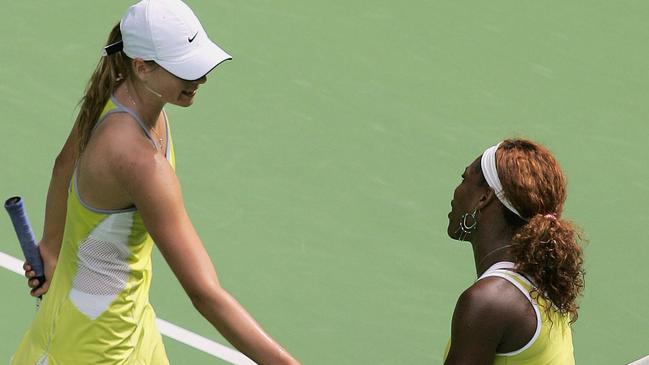
Power was the hallmark of Williams’s game. Her serve was fearsome, at speeds of up to 128mph, and her groundstrokes penetrating off either side. But it would be unfair to merely regard Williams as a big-hitter who blasted her opponents off the court. Her tactical counterpunching was intelligent, her athleticism unrivalled and her mental strength formidable.
Arguably Williams’s greatest triumph was the last of her 23 grand-slam singles titles. Before the 2017 Australian Open, she discovered with shock that she was six weeks’ pregnant, yet subsequently won all 14 sets she played during the tournament.
Williams came close to death because of complications during the birth of her daughter, Olympia, in September 2017, but remarkably returned to the tour as a mother only five months later. Understandably, she could never rediscover her dominance, winning only one further WTA trophy at the 2020 Auckland Classic. Four appearances in grand-slam finals, at Wimbledon and the US Open in 2018 and 2019, is not to be sniffed at, but she lost all four tamely in straight sets as she desperately tried to draw level with Court.
One particular regret will be her behaviour during her defeat by Osaka at Flushing Meadows in 2018, when she was correctly docked a game for verbal abuse of the umpire Carlos Ramos, had a point penalty for racket smashing and a code violation for coaching. It was ludicrous of her to claim afterwards that the experienced Portuguese official was being sexist.
The site of her most controversial moment will now host her final act in tennis. It is almost certain that Williams’s career will not end with a trophy but at whatever stage of the draw she exits, 23,000 spectators in the world’s largest tennis venue, Arthur Ashe Stadium, will ensure an emotional and fitting farewell to this incredible woman.
Serena Williams calls time on remarkable career
-Michael Randall
Legendary tennis great Serena Williams’ pursuit of Margaret Court’s grand slam record will end at the US Open.
The superstar will retire after the US Open on a remarkable career that includes 23 major titles and almost US$95 million in career earnings.
Approaching her 41st birthday, Williams penned an emotional piece in Vogue magazine, announcing she will swing the racquet in anger for the last time at Flushing Meadow next month, with plans to add to her family with husband Alexis OHanian and daughter Olympia.
“I have never liked the word retirement,” Williams wrote.
“It doesn’t feel like a modern word to me.
“The best word to describe what I’m up to is evolution. I’m evolving away from tennis, toward other things that are important to me.
“I’ve been reluctant to admit to myself or anyone else that I have to move on from playing tennis.
“It’s like it’s not real until you say it out loud.
“It comes up, I get an uncomfortable lump in my throat, and I start to cry.”
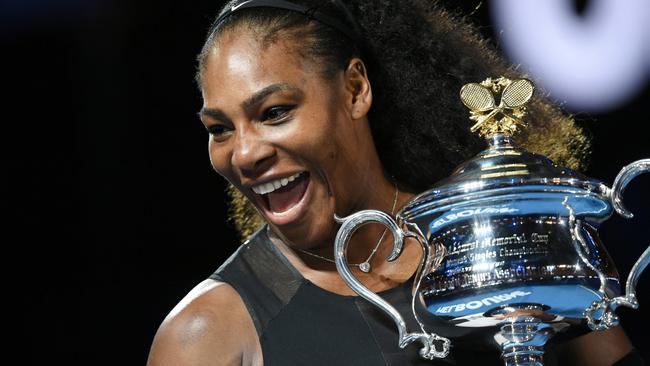
World tennis will now watch two greats of the game retire within months, after Aussie Ash Barty stepped away as Wimbledon champion and World No.1.
“One thing I’m not going to do is sugar-coat this,” Williams wrote.
“I know that a lot of people are excited about and look forward to retiring, and I really wish I felt that way.
“Ashleigh Barty was No.1 in the world when she left the sport this March, and I believe she really felt ready to move on.
“Caroline Wozniacki, who is one of my best friends, felt a sense of relief when she retired in 2020.
“Praise to these people but, I’m going to be honest, there is no happiness in this topic for me.
“I feel a great deal of pain.
“It’s the hardest thing that I could ever imagine.
“I hate it. I hate that I have to be at this crossroads.”
Williams will retire an icon of the sport, playing her first professional match at the tender age of 14, way back in September 1995, and developing into the most dominant woman ever to take to a tennis court.
She has won Australian Open and Wimbledon titles seven times each, three French opens and six at her home major. Her 23 is the most in the open era and one short of Australian Court’s 24.
“Unfortunately I wasn’t ready to win Wimbledon this year,” Williams wrote.
“And I don’t know if I will be ready to win New York. But I’m going to try. And the lead-up tournaments will be fun.
“I know there’s a fan fantasy that I might have tied Margaret that day in London, then maybe beat her record in New York, and then at the trophy ceremony say, ‘See ya!’ I get that.
“It’s a good fantasy. But I’m not looking for some ceremonial, final on-court moment. I’m terrible at goodbyes, the world’s worst.
“But please know that I am more grateful for you than I can ever express in words.
“You have carried me to so many wins and so many trophies.
“I’m going to miss that version of me, that girl who played tennis. And I’m going to miss you.”

